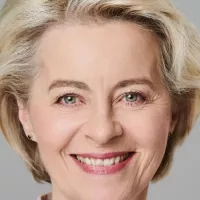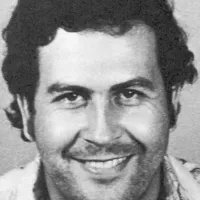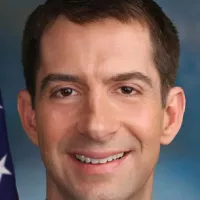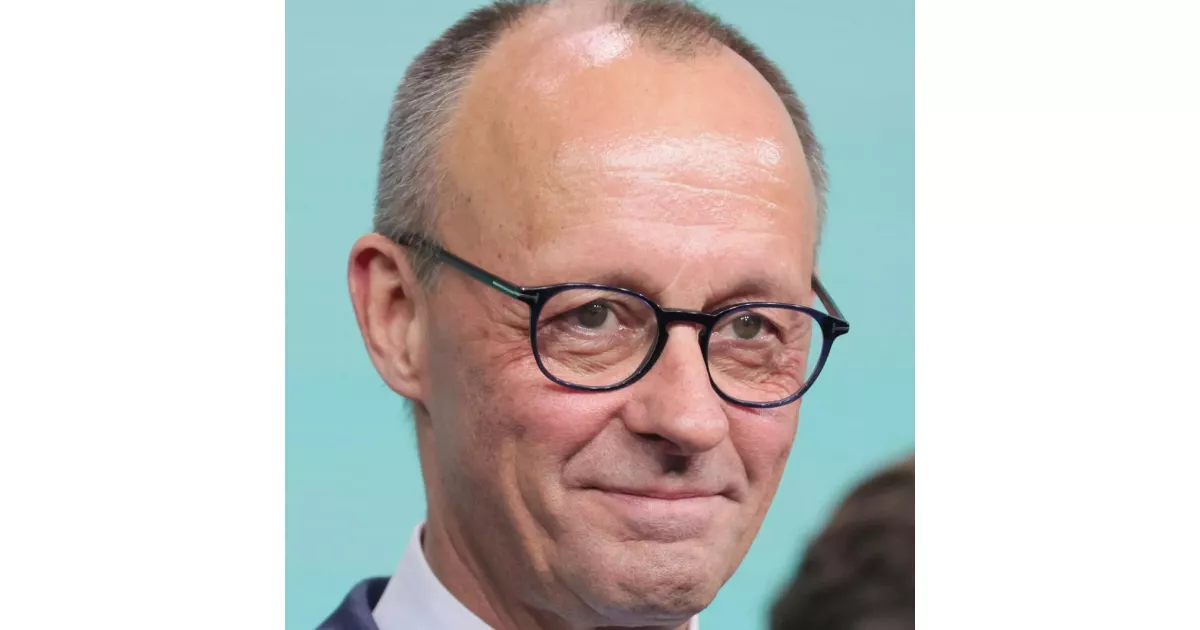How Friedrich Merz built a successful career. Explore key moments that defined the journey.
Friedrich Merz is a prominent German politician, currently serving as the Leader of the Christian Democratic Union (CDU) since January 2022. He also led the CDU/CSU parliamentary group and served as Leader of the Opposition in the Bundestag. In September 2024, Merz became the Union's candidate for Chancellor of Germany ahead of the 2025 federal election. The CDU won the most seats, and a CDU/CSU coalition with the SPD was formed, projecting Merz to become Chancellor on May 6, 2025. However, he failed to secure a parliamentary majority in the initial vote, a historic first for a German chancellor candidate.
1980: President of Brilon Branch of Young Union
In 1980, Merz became President of the Brilon branch of the Young Union.
1985: Finished Law School
In 1985, Merz finished law school and subsequently worked as a judge and corporate lawyer.
1986: Worked as a Judge and Attorney
In 1986, Merz left his position as a judge to work as an in-house attorney at the German Chemical Industry Association.
1989: Worked at German Chemical Industry Association
From 1986 to 1989, Merz worked as an in-house attorney-at-law at the German Chemical Industry Association.
1989: Elected to European Parliament
In 1989, Merz was elected as a candidate in the European Parliament election.
1994: Elected to Bundestag
From the 1994 German elections, Merz served as a member of the Bundestag for his constituency, the Hochsauerland.
1994: End of Term in European Parliament
In 1994, Merz's term as a Member of the European Parliament concluded.
October 1998: Vice-Chairman of CDU/CSU Parliamentary Group
In October 1998, Merz became vice-chairman of the CDU/CSU parliamentary group.
February 2000: Chairman of the CDU/CSU Parliamentary Group
In February 2000, Merz became Chairman of the CDU/CSU parliamentary group, succeeding Wolfgang Schäuble.
2000: Elected Chairman of CDU/CSU Parliamentary Group
In 2000, Merz was elected chairman of the CDU/CSU parliamentary group.
2002: Elected Deputy Parliamentary Group Leader
After the 2002 federal election, Angela Merkel claimed the parliamentary group chairmanship for herself, while Merz was elected deputy parliamentary group leader.
2002: Shadow Cabinet Appointment
Ahead of the 2002 elections, Edmund Stoiber included Merz in his shadow cabinet for the Christian Democrats' campaign.
2002: Secondary Jobs as a Member of the Bundestag
In the 14th legislative period (2002–2005), Friedrich Merz had a total of 18 secondary jobs as a member of the Bundestag (federal parliament of Germany).
December 2004: Resigned from Office
In December 2004, Merz resigned from his office as deputy parliamentary group leader, withdrawing from politics and focusing on his legal career.
2004: Vice-Chairman Until 2004
After Stoiber's electoral defeat, Angela Merkel assumed the leadership of the parliamentary group; Merz again served as vice-chairman until 2004.
2004: Senior Counsel at Mayer Brown
Since 2004, Merz has been a Senior Counsel at Mayer Brown's Düsseldorf office, where he works on the corporate finance team.
2005: Establishment of Friedrich und Charlotte Merz Stiftung
In 2005, Friedrich Merz and his wife established the Friedrich und Charlotte Merz Stiftung, a foundation supporting projects in the education sector.
2005: Secondary Jobs as a Member of the Bundestag
In the 14th legislative period (2002–2005), Friedrich Merz had a total of 18 secondary jobs as a member of the Bundestag (federal parliament of Germany).
October 2006: Hearing on Disclosure of Secondary Income
In October 2006, Friedrich Merz pointed out that according to Article 38 of the Basic Law of Germany (constitution), members of parliament are "not bound by instructions and are subject only to their conscience" during the hearing regarding the disclosure of their secondary income.
2006: Multiple Board Memberships
In 2006, Friedrich Merz was represented on the boards of eight different companies.
2006: Estimated Additional Income
In 2006, a conservative estimate showed that Friedrich Merz's additional income, apart from his lawyer's salary, amounted to a quarter of a million euros.
July 2007: Federal Constitutional Court Vote
In July 2007, the Federal Constitutional Court voted four to four to reject a lawsuit against the disclosure of secondary income, emphasizing the importance of the political mandate and concerns about potential bias from external payments.
2007: Announced Not Running for Political Office
By 2007, Merz announced he would not be running for political office in the 2009 elections.
2007: Defense Against Criticism of Secondary Activities
In 2007, Friedrich Merz wrote a letter to his voters in an attempt to defend himself against criticism of his secondary activities.
2007: Manager Magazine Article on Secondary Jobs
In 2007, Manager Magazine wrote about Friedrich Merz's secondary jobs.
2009: Announced Not Running for Political Office
By 2007, Merz announced he would not be running for political office in the 2009 elections.
2009: Left the Bundestag
In 2009, Friedrich Merz left the Bundestag.
2009: Secondary Jobs as a Member of the Bundestag
In the 15th legislative period (2005–2009), Friedrich Merz had at least 11 secondary jobs as a member of the Bundestag (federal parliament of Germany).
2010: Represented Shareholders of WestLB
Between 2010 and 2011, Merz represented the shareholders of WestLB in talks with bidders.
2011: Represented Shareholders of WestLB
Between 2010 and 2011, Merz represented the shareholders of WestLB in talks with bidders.
2012: Advisor on Economic Policy
In 2012, Merz joined Norbert Röttgen's campaign team for the North Rhine-Westphalia state election as advisor on economic policy.
November 2017: Commissioner for Brexit and Transatlantic Relations
In November 2017, Merz was appointed as Commissioner for Brexit and Transatlantic Relations.
2017: CDU Delegate to Federal Convention
He served as a CDU delegate to the Federal Convention for the purpose of electing the President of Germany in 2012 and in 2017.
November 2018: Remarks on AfD and Wealth
In November 2018, Friedrich Merz reiterated that the CDU must distance itself from the AfD, alleging National Socialist and antisemitic undertones. In a separate interview that same month, Merz stated he was a millionaire, placing himself in the upper middle class, sparking public debate, and also stated that introducing same-sex marriage in Germany was the right thing to do.
November 2018: Statement on Wealth and Income
In November 2018, Friedrich Merz stated in an interview that he was a millionaire and earned around one million euros gross per year, placing himself in the upper middle class. This statement sparked public criticism and debate.
December 2018: Defeated in Leadership Election
On 7 December 2018, in the second round of the leadership election, Merz was defeated by Annegret Kramp-Karrenbauer.
2018: Announced Return to Politics
In 2018, Merz announced his return to politics.
2019: Statements on Cooperation with AfD
In 2019, Friedrich Merz claimed it was right for the CDU to refuse cooperation with the AfD but also advocated for a "more calm approach", suggesting electing an AfD vice president in the Bundestag.
February 2020: Announced Candidacy in CDU Leadership Election
On 25 February 2020, Merz announced his candidacy in the first 2021 CDU leadership election.
January 2021: Failed to Win Party President's Post
On 15–16 January 2021, Merz failed to win the CDU party president's post for the second time, receiving 466 votes out of 1001 delegates, while Laschet received 521 votes.
November 2021: Announced Candidacy in CDU Leadership Election
On 15 November 2021, Merz announced his candidacy in the second 2021 CDU leadership election.
December 2021: Won CDU Leadership Election
By 17 December 2021, Merz had won an absolute majority of 62.1 per cent of the membership in the first round of voting in the CDU leadership election, thus winning the party presidency at his third attempt.
December 2021: Elected CDU Leader
In December 2021, Merz was elected CDU leader.
December 2021: Warning Against Cooperation with AfD
In December 2021, shortly before becoming party chairman, Friedrich Merz declared that any CDU state associations cooperating with the AfD would face party exclusion.
2021: Returned to Bundestag
Ahead of the 2021 German federal election, Merz returned to the Bundestag after a 12-year absence.
2021: Pledge to Forego Professional Activities
In 2021, before the federal election, Friedrich Merz announced that he would no longer pursue any "professional activities outside of politics" if he were re-elected to the Bundestag.
January 2022: Leader of the CDU
In January 2022, Friedrich Merz became the Leader of the Christian Democratic Union (CDU).
January 2022: Assumed Office as CDU Leader
In January 2022, Merz assumed office as CDU Leader.
February 2022: Leader of the Opposition in the Bundestag
In February 2022, Friedrich Merz led the CDU/CSU (Union) parliamentary group and became Leader of the Opposition in the Bundestag.
June 2023: Restricting Cooperation Ban with AfD
In June 2023, Friedrich Merz declared that cooperation with the AfD would only be prohibited in legislative bodies at the EU, federal, and state levels, which was a retraction from his earlier promise to halve the AfD.
September 2024: Union's Candidate for Chancellor
In September 2024, Friedrich Merz became the Union's candidate for Chancellor of Germany ahead of the 2025 federal election.
November 2024: Proposal on Voting Strategy
In November 2024, Friedrich Merz proposed that the CDU should only put questions to the vote that would find a majority without the AfD.
January 2025: Merz calls EU asylum rules dysfunctional
In January 2025, following the Aschaffenburg stabbing attack, Friedrich Merz criticized the EU asylum rules, calling them "visibly dysfunctional", and asserted Germany's right to prioritize national law. He announced plans to implement fundamental changes to the right of entry, asylum, and residence in Germany.
January 2025: Rejection of Coalition with AfD and Subsequent Motion
In early January 2025, Friedrich Merz passionately ruled out any cooperation between the CDU and AfD, stating that the CDU would "sell its soul". Later that month, the CDU, influenced by a deadly knife attack, issued a motion on migration that passed due to the AfD's support, ignoring Merz's previous proposal to avoid votes dependent on AfD support. The proposed legislation was later rejected due to abstentions from CDU legislators.
March 2025: Merz proposed increase in defence spending
In March 2025, Friedrich Merz proposed a significant increase in defence spending for Germany, suggesting an amendment to the Basic Law to exempt defence spending above 1% of GDP from the debt brake. This would allow Germany to increase its debt to finance its military and provide assistance to Ukraine. German lawmakers approved the amendment to the Basic Law, allowing the government to spend €500 billion on infrastructure and green energy and exempt defence spending from the debt brake, which allows an unlimited debt-based financing of defence spending. Merz cited the threat from Russia as justification.
April 9, 2025: Merz presents coalition agreement
On April 9, 2025, Merz, along with Markus Söder, Lars Klingbeil, and Saskia Esken, presented the coalition agreement for the planned black-red coalition.
May 5, 2025: Coalition agreement signed
On May 5, 2025, the coalition agreement was signed after internal party votes in the CDU, CSU and SPD approved the government coalition in the preceding weeks.
May 2025: Projected Chancellor of Germany
In May 2025, Friedrich Merz was projected to become the next chancellor; however, he failed to garner enough votes for a simple parliamentary majority in the first round of voting.
2025: CDU Wins Most Seats
Following the 2025 federal election, exit polls showed CDU would win the most seats in the German parliament.
2025: Federal Election
In September 2024, Merz became the Union's designated candidate for Chancellor of Germany in the 2025 federal election.
2025: Coalition Talks Initiated
In the aftermath of the vote in 2025, the Christian Democratic Union (CDU) and the Social Democratic Party (SPD) initiated coalition talks to form the next government.
2045: Climate neutrality target
As part of the March 2025 agreement, Merz agreed to create a special fund of €500 billion for investments in infrastructure and for additional investments to achieve climate neutrality by 2045.
Mentioned in this timeline

Donald John Trump is an American politician media personality and...
Ukraine is a large country in Eastern Europe second in...

Benjamin Bibi Netanyahu is a prominent Israeli politician and diplomat...

Ursula Gertrud von der Leyen is a prominent German politician...
Germany officially the Federal Republic of Germany is a Western...
China officially the People's Republic of China PRC is an...
Trending

2 months ago Euphoria Season 3: Release date, cast changes, streaming info, and Zendaya's role.

27 days ago Ubisoft's Anno 117 includes AI art placeholder; Fans react negatively.

2 months ago Virginia Vallejo, Pablo Escobar's ex, reveals health struggle: Suffered a brutal stroke.

7 months ago Jake Gyllenhaal's 'Othello' Snubbed by Tony Awards Despite Box Office Success with Denzel Washington.
9 days ago World Cup 2026 Draw: Brazil in Group C, France's Path

Maisie Williams is an English actress who gained widespread recognition for her role as Arya Stark in the HBO series...
Popular

Candace Owens is an American conservative political commentator and author...

Ilhan Omar is an American politician currently serving as the...

XXXTentacion born Jahseh Dwayne Ricardo Onfroy was a controversial yet...

Tom Cotton is an American politician and Army veteran currently...

Kelsey Grammer is an accomplished American actor producer and singer...
The Kennedy Center Honors are annual awards recognizing individuals and...
